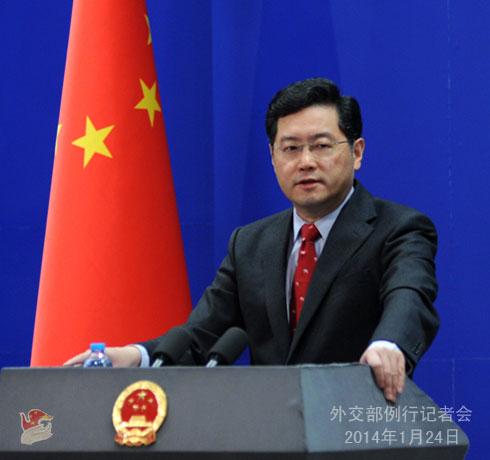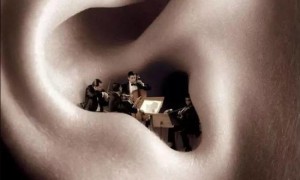外交部回应安倍拿英德说事儿:日本应直面历史
China has reacted strongly to the speech made by Japan’s Prime Minister Shinzo Abe on Wednesday in Davos. In his keynote address at the World Economic Forum, Abe called for military restraint in Asia, but did not single out China by name. He also defended his visit to the controversial Yasukuni War shrine.
 |
| Qin Gang, Spokesman of Chinese Foreign Ministry. |
In recent days, tensions between China and Japan have hit new highs. After Japanese Prime Minister, Shinzo Abe, made a veiled warning against alleged China’s military build-up on Wednesday. To an audience of some of the world’s most influential people, in Davos: He said quote: "We must, ladies and gentlemen, restrain military expansion in Asia, which could otherwise go unchecked."
"We must restrain military expansion in Asia, which would otherwise go unchecked." Shinzo Abe, Japanese Prime Minister said.
This despite Abe’s recent efforts to change Japan’s pacifist, post-war constitution. To allow it "collective self-defense" - responding to an aggressor threatening any of its allies, even if Japan itself is not attacked.
He also compared China’s relationship with Japan, to that between Britain and Germany before World War one - in which they fought, despite strong trade ties. Remarks China says, are inappropriate:.
"Rather than talking about relations between Britain and Germany before the First World War, Japan should face up to what it has done in the past. What should be remembered is Japan’s aggression, the suffering it brought to its neighbours, including China, during the war. only when Japan really faces its history, will there be a future for ties between Japan and other nations in Asia, and people in Asia and the world can be free from concern." Qin Gang, Spokesman of Chinese Foreign Ministry said.
China-Japan ties have steadily soured since 2010, mainly over disputed islands in the East China Sea and what China terms Japan's refusal to face up to its militaristic past. Others say relations have also been worsened by Abe - who defended his visit to Tokyo’s Yasukuni War Shrine - which honours convicted war criminals, among Japan’s war dead.
On Friday in Tokyo, Abe said he wants to work on the relationship, But implied China should take the first step.
"The ties between Japan and China are inseparably linked. I will call for China to return our relationship to its foundation of strategic mutual interdependence and will build on that in an endeavour to improve ties." Shinzo Abe, Japanese Prime Minister said.
More than 6,000 Chinese internet users commented on China’s response to Abe’s speech on China’s Twitter-like service, Weibo. One said, "Abe said why not go to the Yasukuni shrine, since this year marks the 100th anniversary of World War One? But many Europeans don’t understand what he really said. When Europeans mourn their war dead, they do not mourn the Nazis who died with them." Another said: "Unless Abe says sorry, China shouldn’t talk to him."
The rising tensions between China and Japan come just two weeks before the Sochi winter Olympics. But any dialogue between the two countries is now looking increasingly unlikely. Shinzo Abe may attend the opening ceremony. But while Chinese President Xi Jinping’s attendance is ///confirm/i/i/ied, China says he has no plans to meet Abe.







